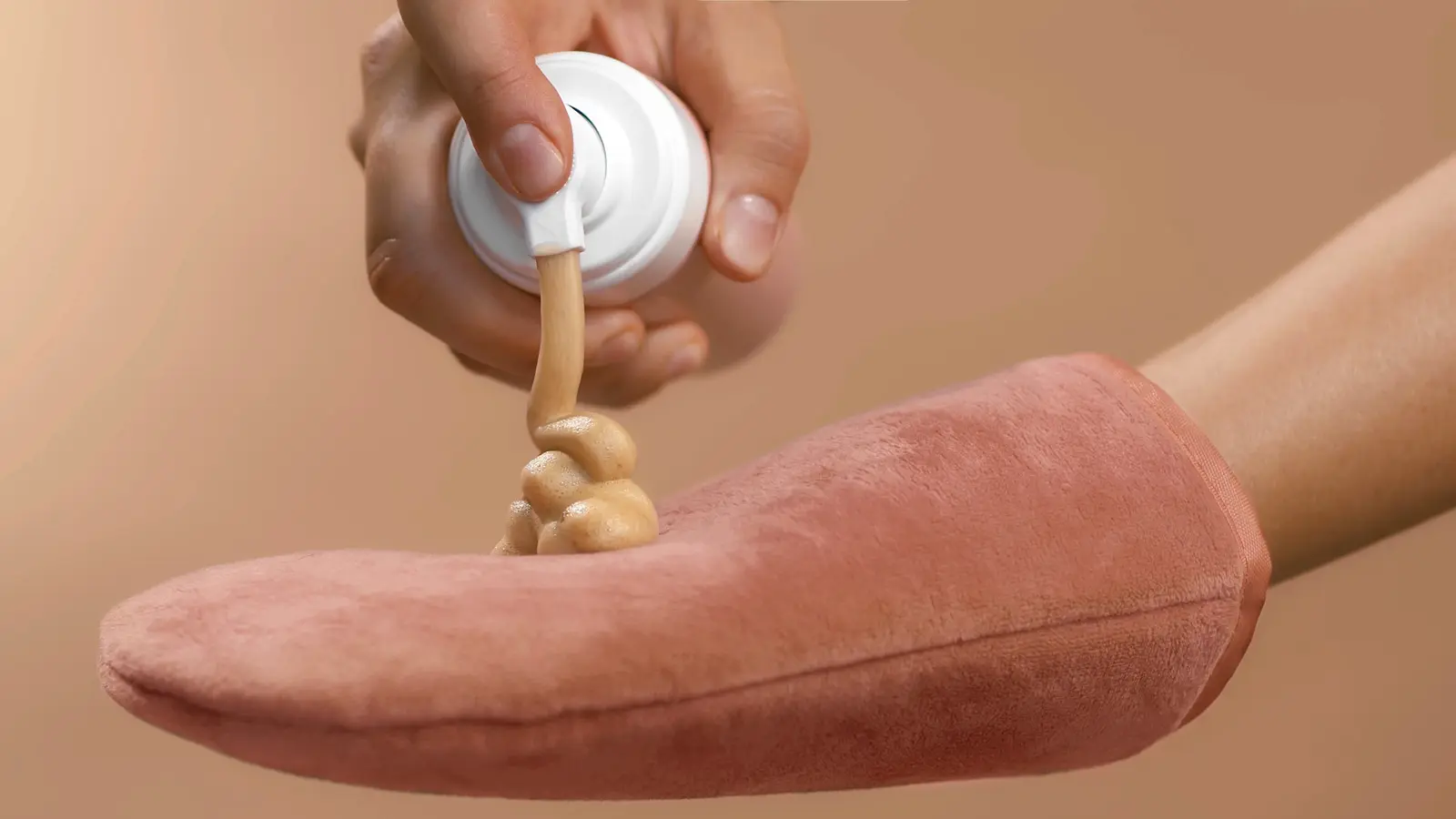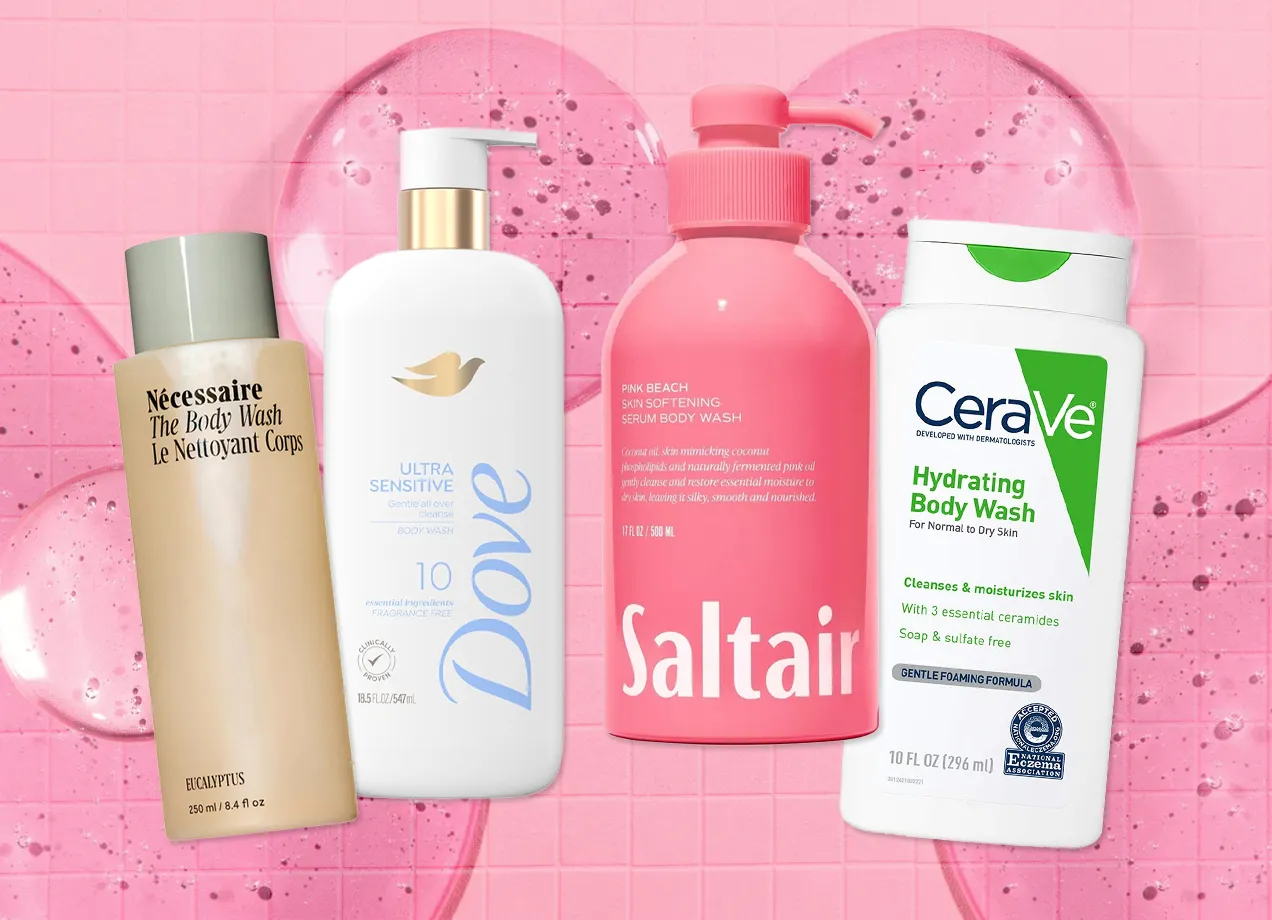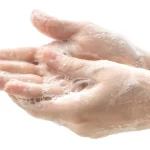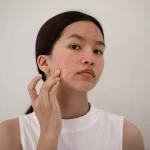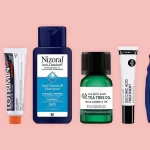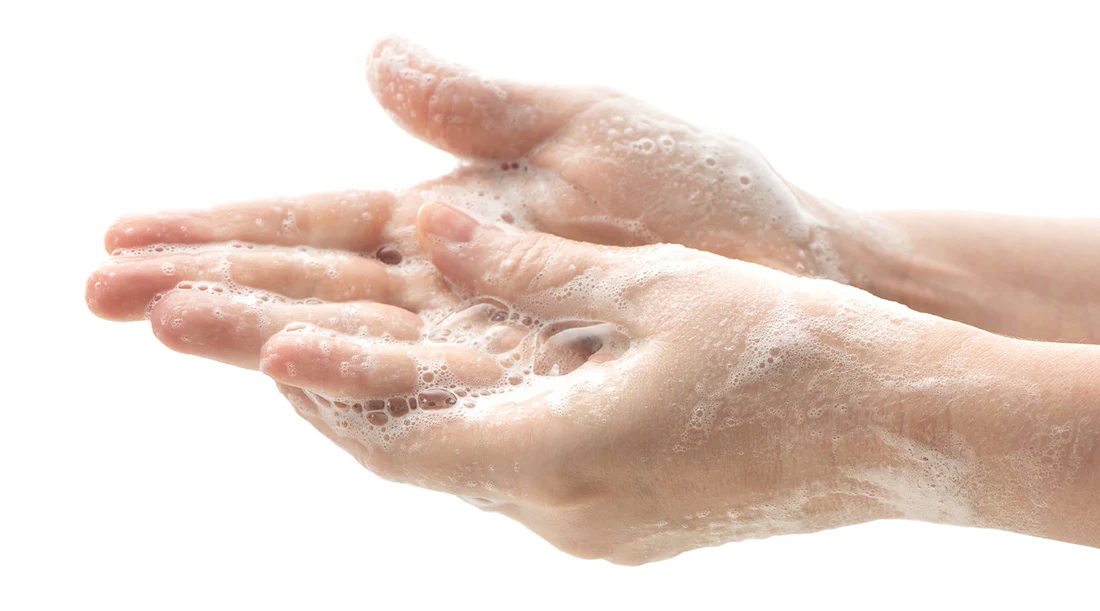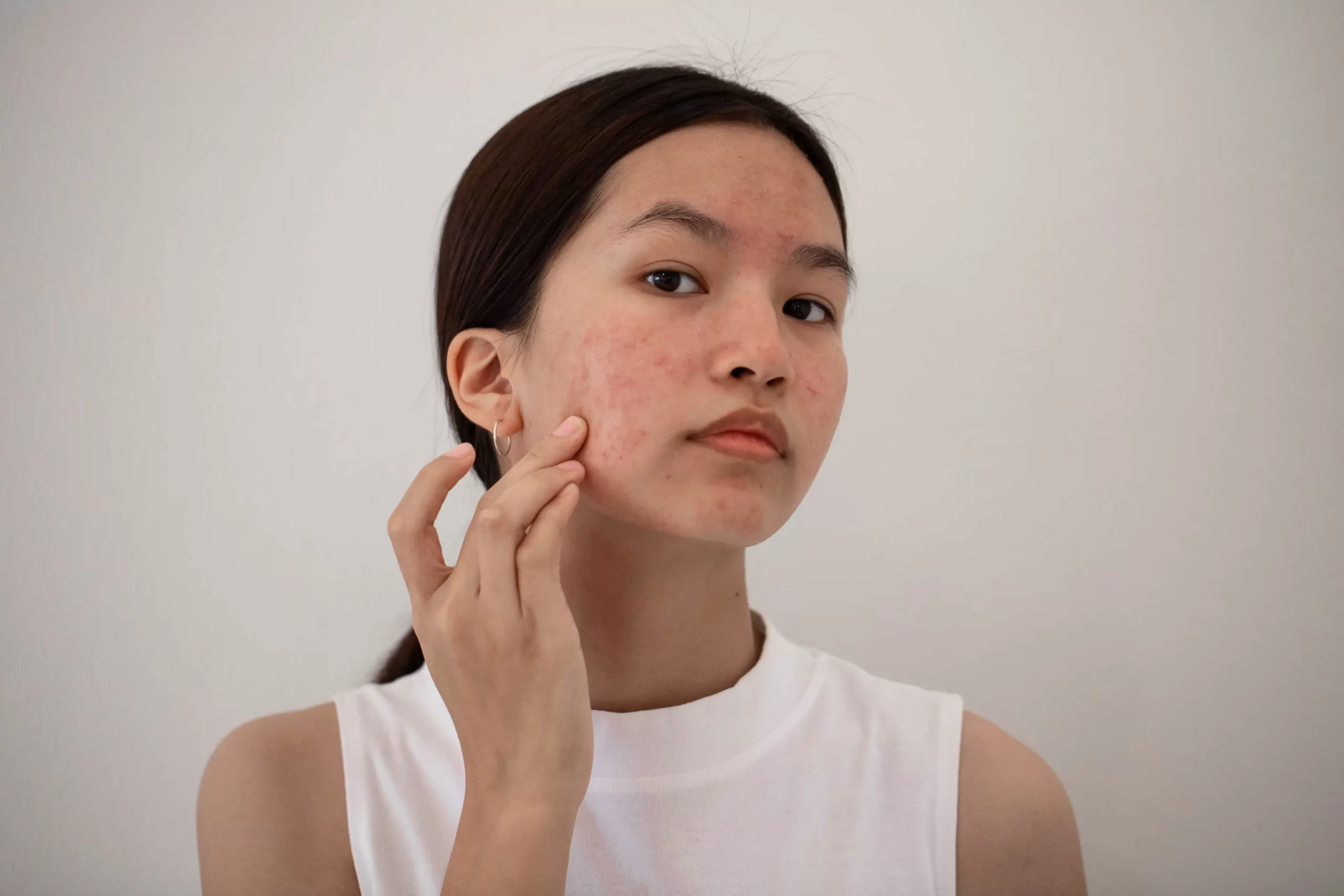Finding the best self-tanner dermatologist recommended can be overwhelming. Many tanning products promise safe, natural results, but not all deliver. At DermOnDemand, led by board-certified dermatologist Dr. Hannah Kopelman, we share options backed by science and expert care.
Key Takeaways
- Dermatologists recommend self-tanners with safe levels of dihydroxyacetone (DHA), which reacts with amino acids in the top layer of the skin to create natural color without UV exposure.
- Safer options like tanning lotions, drops, and sprays prevent sun damage, while tanning beds should be avoided due to their high cancer risk.
- Different products work best for specific needs, such as gradual lotions for beginners, face-specific drops for sensitive areas, and dermatologist-recommended self-tanners for sensitive skin.
- Proper preparation, even application, and daily moisturizing are essential steps to achieve a natural, even bronzed glow and extend the results.
- Expert guidance from board-certified dermatologists, such as Dr. Hannah Kopelman at DermOnDemand, ensures that self-tanner choices match skin tones while protecting long-term skin health.
What Dermatologists Recommend for Safe Tanning
Key ingredients dermatologists trust
Most tanning lotions use dihydroxyacetone (DHA). This ingredient reacts with amino acid compounds in the top layer of the skin to create color. Board-certified dermatologists suggest products with safe DHA levels to get even results across skin tones. Moisturizers, such as aloe or hyaluronic acid, help keep the skin soft after use.
Unsafe tanning methods to avoid
Dermatologists warn against tanning beds. They send harmful UV rays into deeper layers of the skin and cause sun damage. Fake tanning with lotions, drops, or sprays is much safer and avoids long-term risks. Do not mix at-home skin care with DHA powders or liquids, since this can irritate sensitive skin.
Which fake tan looks most natural?
The most natural tans match the undertone of your skin. Gradual tanning lotions, such as Jergens Natural Glow or brands like St. Tropez, provide soft, buildable color. Products with a guide tint make them easy to apply and reduce streaks.
Top Rated and Dermatologist-Approved Self-Tanners
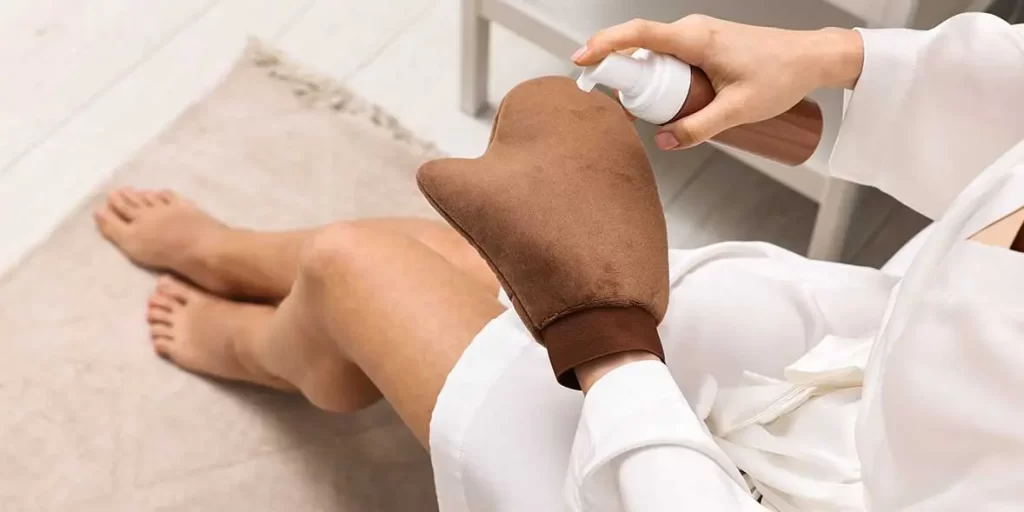
Best self-tanner for face, dermatologist recommended
The skin on the face is delicate and reacts faster than the body. Lighter tanning drops blend seamlessly into daily skincare and are easy to apply. Dermatologists suggest lower DHA levels to prevent clogged pores and uneven tone.
Additional products: Clarins Radiance-Plus Golden Glow Booster and Isle of Paradise Self-Tanning Drops are dermatologist-reviewed. They mix with moisturizer, allowing control over shade depth. Both are designed for gentle daily use.
Best self-tanner for beginners (including pale skin)
For individuals with pale skin or those who are new to tanning, gradual tanning lotions are the safest option. They build color slowly and lower the risk of streaks. The best self-tanning lotions, as reviewed by a safe dermatologist, give predictable results and are less harsh for sensitive skin tones.
Best self-tanner for fair skin with freckles
Fair skin with freckles can look patchy if the wrong product is used. Lotions with extra hydration spread more evenly across the skin. Choosing a subtle shade helps keep freckles visible while adding a bronzed glow.
Best gradual self-tanner dermatologist recommended
Gradual tanning lotions gradually build color over time. They are easy to apply and can be easily integrated into a daily skincare routine. Jergens Natural Glow remains a top pick for those seeking a straightforward option that delivers results.
Other choices: Bondi Sands Gradual Tanning Milk and Tan-Luxe The Gradual Lotion also provide soft, even results. Both are reviewed by dermatologists and give a sun-kissed finish that lasts.
A dermatologist recommended a self-tanner for sensitive skin
People with sensitive skin need fragrance-free options. A dermatologist recommended a self-tanner for sensitive skin that uses low DHA and mild carriers. These formulas avoid harsh chemicals that may cause redness or itching.
Female best self-tanner dermatologist recommended
Women often need products that work for both face and body. Dermatologists point to tanning lotions that blend with makeup or daily creams. These options allow layering without heavy buildup.
Male best self-tanner dermatologist recommended
Men prefer products that dry fast and fit into a simple routine. Gel-based tanning lotions are easy to apply and less likely to stain clothes. Natural-looking results are ideal for work or social settings, including busy places like New York City.
Extra picks: Vita Liberata Invisible Mousse and Coola Sunless Tan Face Serum are both dermatologist-reviewed. They dry quickly, are easy to apply, and provide a subtle tan.
How to Apply Self-Tanner Like a Dermatologist Suggests

Prepping your skin the right way
Exfoliate to remove dead cells from the top layer of the skin. This creates a smooth surface for DHA to react evenly with amino acid compounds. Apply moisturizer on dry areas like elbows and knees before tanning.
Application tips for even coverage
Apply lotion in small, circular motions. Blend carefully around wrists, ankles, and the neck. Always wash your hands after applying self-tanner to avoid stains. Using gloves or a mitt also helps maintain even color.
Extending results safely
Moisturize daily to keep color longer. Avoid scrubbing your skin too much in the shower, as this removes the top layer. Reapply every few days to keep a steady, natural sun-kissed glow.
Why Expert Guidance Matters in Choosing a Self-Tanner
Dr. Hannah Kopelman explains that safe tanning means choosing the right formula for your skin. Without a dermatologist’s advice, you may risk irritation, uneven tone, or long-term sun damage. If you’ve ever wondered what does a dermatologist do at an appointment, this can also help you understand how experts evaluate skin health before recommending tanning products.
Experts help match products to your skin tones and ensure long-lasting care. Knowing when to see a dermatologist is also key if irritation, redness, or unusual skin changes appear after using self-tanner. DermOnDemand offers guidance you can trust.
Start Your Online Dermatology Plan Today
Choosing the right self-tanner is safer with help from a board-certified dermatologist. DermOnDemand connects you with an expert in less than 24 hours. Skip tanning beds and risky methods – book your consultation today for a healthy, bronzed glow.


